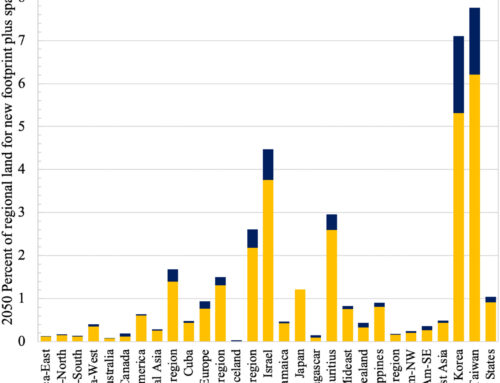Cannabis licensing sparks debate in Telluride
June 1, 2025
Alpine Wellness, LLC, and its owners are working past challenges with the Town of Telluride Marijuana Licensing Authority and have been called a model business in Norwood, where the town is working to make things easier for licensing. Meanwhile, Alpine Wellness and all other retail and medical cannabis businesses remain stuck between state and federal regulations, as they have since Amendment 64 was passed in Colorado, legalizing recreational marijuana sales and use at the state level.
While Colorado state laws around retail and medical cannabis do not specifically use language requiring licensed operations to comply with federal tax laws, the Town of Telluride does have a line in its license renewal application that asks, “ls the Applicant in default on any Town, County, State or Federal taxes, fees, fines, or charges?”
The Towns of Norwood and Naturita adopted the same application renewal form from Telluride, including the federal question.
In the past few months, the Town of Norwood has made two moves regarding retail marijuana licensing, in response to requests from the two marijuana retail owners in Norwood.
In March, Dahlia Mertens, owner of Mary Jane’s Medicinals, asked the Town of Norwood to reconsider licensing fees.
At the time, Norwood charged $1,500 annually for license renewal. After discussion, the board unanimously decided to drop the licensing fee to $250, the same amount as liquor store licensing fee.
In fact, Amendment 64, passed by Colorado voters in November 2012, uses language making marijuana regulation similar to alcohol regulation.
“The people of the State of Colorado find and declare that the use of marijuana should be legal for persons twenty-one years of age or older and taxed in a manner similar to alcohol…[and] should be regulated in a manner similar to alcohol.”
At the March town board meeting, Norwood Mayor Candy Meehan shared her opinion with the board before they voted.
“I have never felt we should be making our revenue off of our businesses,” Meehan said. “These [marijuana retailers in Norwood] are businesses that are steady and are the template for how it should be done.”
Mike Grady, co-owner with Nolan Murphy of Alpine Wellness, and a Norwood Town Board of Trustees member, recused himself from the discussion and vote.
In April, Grady presented arguments regarding the word federal in the license renewal application and asked the Town of Norwood to strike the word from the license renewal application.
Norwood Town Clerk Amanda Pierce checked with the Colorado Marijuana Enforcement Division (MED) regarding the proposed change.
“They kind of giggled and said that our application is very robust, and if there are issues with taxes, they’ll take care of it,” Pierce said.
In his presentation, Grady said, “This one question drags local government into federal enforcement…and puts operators [of licensed marijuana businesses] in an impossible situation.”
The Norwood Town Board of Trustees voted unanimously to strike the word federal from their municipal application.
“In the spirit of 1776, I’m all behind it,” said trustee Niven Drybrough as he seconded the motion.
Again, Meehan spoke in favor of local businesses.
“It’s my intention to support businesses,” she said.
Addressing Grady, she added, “Your business is a model business and a great partner to the Town of Norwood.”
That very situation — about selling marijuana, legal in Colorado, and paying federal taxes on a federally criminal act — is what brought Alpine Wellness and its operators to a hearing on May 29 with the Town of Telluride Marijuana Retail Licensing Authority.
David Lieberman, the town’s marijuana licensing officer, ran the hearing. In attendance were Jason Wilson, Town of Telluride assistant attorney; Piper Miller, clerk for Telluride boards and commissions; Grady, representing Alpine Wellness; and Murphy.
It got tangled quickly, with both Grady and Wilson reiterating their concerns but not seeming to find a way to agree.
Wilson opened the meeting with the Town of Telluride’s concerns.
“When the [Telluride licensing] Authority issued its renewal order [for Alpine Wellness], it set forth some conditions with respect to the IRS federal tax issues regarding the principals of Alpine and Alpine itself,” he said.
That was in January. Wilson went on to explain that Alpine submitted some materials. The authority asked for the rest later in January.
“After that order, it became apparent to the town that there might be some confusion with respect to what’s being requested,” Wilson said.
That led to the May 29 hearing, which was set to clarify those requests, Wilson explained.
Grady responded with his opening statement.
“My name is Michael Grady, founder of Alpine Wellness, a licensed cannabis business operating in Telluride since 2009. From 2011 to 2021, our license was renewed without controversy under hearing officers Jennifer Fox and Daniel Zemke. Our federal tax status was never cited as a condition of license renewal, or concern of compliance,” he said
Grady said the practice changed in 2022.
“Now the town is using that same question — undefined, unsupported, and legally vague as the basis for possible revocation [of our license],” he said. “This question is not required by state law. More importantly, it asks a licensee to affirm or deny a status defined only under federal criminal law, not by the state of Colorado, and not by this town.”
“Today’s hearing isn’t about Alpine,” Grady added. “It’s about whether this town, and by extension the State of Colorado that allows it, is willing to profit from cannabis compliance while using federal illegality as a tool for punishment. This is no longer a business dispute, it’s a constitutional conflict.”
When Grady asked the licensing authority to remove the word federal from the application renewal paperwork, the authority said they would not.
“This is not the proper venue,” Wilson said. “We are not prepared, and we don’t think it’s an appropriate venue to address anything outside of the conditions on the renewal application itself.”
Those conditions, Wilson stated at other times during the hearing, include documentation showing that Alpine Wellness and its principals are not in default on federal taxes.
“The town needs to know whether or not Alpine itself is in default with any IRS obligations,” Wilson said.
Grady continued to explain they are in administrative review with the IRS and said there is no other documentation.
Wilson said, “The obligation is on you and your entity to show that you’re in compliance with the Telluride Code.
Grady asked, “Can you please verify what part of the Telluride Code would require me to disclose federal tax default?”
Wilson answered, “In the marijuana code, the authority shall have the power to require any applicant or licensee to furnish any relevant information required by the authority.”
After several go-arounds and restatements of positions, Grady asked for and received an agreement from Wilson to provide, in writing, specific and clear documentation requirements from the licensing authority. Wilson said he would provide those specifics within the next seven days.
The hearing was continued to late July, giving Grady and Murphy time to speak with their attorney. An exact hearing date will be set when all parties have consulted their calendars.
Search
RECENT PRESS RELEASES
Related Post




